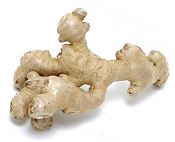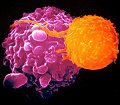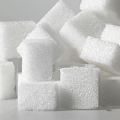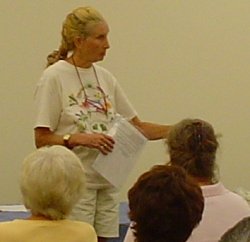Cold and Flu Problems - Page 1
Here's some information about cold and flu problems.
It is possible to effectively ease the pain and discomfort of colds and flu, naturally. Check out these two pages and hopefully they can help.
| Contents of this article: | |
| Page 1: |
Natural cold and flu remedies Is echinacea the answer or not? The two famous G's |
| Page 2: |
The truth about vitamin C Should you eat when you have a cold? Your immune system can make you feel worse! |
Natural cold and flu remedies
Having a cold or getting flu can really make one feel rotten. There are things you can do to help speed up recovery if you catch one. Also there are things you can do to try and minimise or prevent one in the first place. The same herbs that keep colds and flu at bay, can also help you get rid of it faster.
The common cold is caused by any one of 200 different viruses. When infection occurs , the walls of the respiratory tract swell and produce excess mucus, giving rise to the typical cold symptoms.
Symptoms range from sore throat, running nose, nasal congestion, watery eyes to hacking cough, headache, and fever. Most colds run their course in 7-10 days. Recurrent colds (almost constantly suffering) may indicate a lowered immune capacity and too much stress and often not enough sleep.
Colds spread from person to person and are highly contagious. Coughing, sneezing or hand to hand contact will easily pass the virus on. The virus can also live for several hours on everyday surfaces.
BUT - the above is what usually happens. It is possible to speed up the recovery and sometimes a cold can last just a day instead of a week!
Echinacea - Can it be the answer?
One particular herb has recently had a lot of press coverage and marketing as a 'new' cure for colds. Echinacea has in fact been used by America Indians for hundreds of years.
A key thing with echinacea is that the quality of the actual herbal echinacea is vitally important. This leads on to the question of whether echinacea can be the answer.
The only way to know if something like echinacea can help or not is to try it. But do not buy a cheap, watered down echinacea or one that is old. It will be a waste of money and you will be disappointed. Ensure the herb is fresh.
Colds can take hold for many reasons and things such as stress, lack of sleep, poor nutrition, or anxiety or worry over something can all make you more susceptible. So if these other factors are not also looked at and handled, a cold can drag on.
 Echinacea is originally from the North America Plains, but varieties of the species are now found on most continents. Echinacea increases levels of properdin in the body. Perpedin is a chemical which stimulates some of the internal protective mechanisms the immune system responsible. Importantly it seems to stregthen the defence mechanisms which protect the body against bacterial attacks and viruses.
Echinacea is originally from the North America Plains, but varieties of the species are now found on most continents. Echinacea increases levels of properdin in the body. Perpedin is a chemical which stimulates some of the internal protective mechanisms the immune system responsible. Importantly it seems to stregthen the defence mechanisms which protect the body against bacterial attacks and viruses.
Its anti-bacterial effect makes it a good herb for treating many viral and bacterial infections. Echinacea is also an excellent blood cleanser, it helps to sweep dead cells and other debris through the channels of the lymphatic system. And dispatches white blood cells to fight the infection.
The best test to determine if you are taking a good, high strength echinacea is the tongue test. After you have taken the tincture, the back of your tongue should feel numb or tingly. This feeling will soon pass, but you know you are using a good quality product. So when you feel the cold coming on - reach for the echinacea tincture. It is important to try to take echinacea before the full onset of a cold or flu to give the best chance of a swift recovery.
Two famous G's - Garlic and Ginger
No treatment of colds would be complete without Garlic and Ginger.
Garlic has a distinctive taste and smell and it was very highly thought of by the ancient Egyptians, who ensured that the slaves building the Great Pyramids at Cheops were given a daily supply.

The reason for this is garlic contains several helpful compounds, including allicin, one of the plant kingdom's most potent antibiotics. Garlic combines well with echinacea and together make a strong fighting force against infections.
Onion is a close relative of Garlic and has similar properties, containing similar antiviral chemicals. Use onions and leeks in your cooking when you have a cold or are around people who do.
Ginger - Some more information

Ginger reduces pain and fever and has a mild sedative effect that will encourage rest. And it is tasty! (with no lingering odours!) Drink a tea, or soak fresh ginger in hot water, take as a tincture and include it in your food. Ginger is also delicious in a fruit smoothy (a mix of soft chilled fruits put in a blender).





